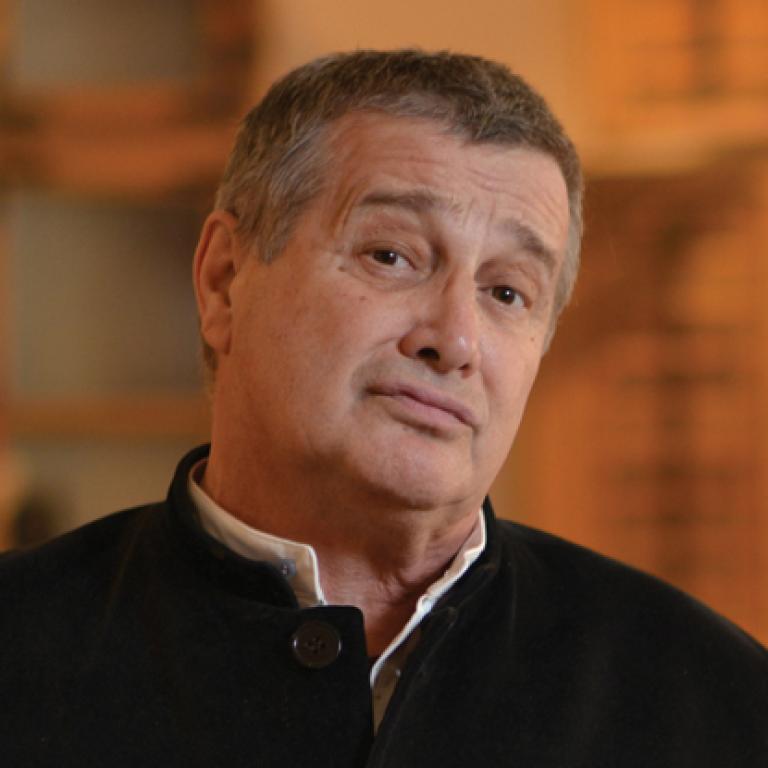
Mircea Dinescu was born in 1950 in Slobozia, a small provincial town in southern Romania. His first poems were published when he was 16, and he was only 21 when he won the Union of Writers’ Debut Prize for his first volume, whereupon he was burdened by literary critics with the title of the enfant terrible of Romanian literature, a label which stuck for the next 20 years. Further collections appeared in Romania and received further awards from the Writers’ Union and the Romanian Academy, but by the late 1980s he and his work were seen as controversial and confrontational, and his final book before the revolution of 1989 could only be published abroad.
In 1989 he was placed under house arrest following the publication in the French newspaper Libération (17 March 1989) in which Dinescu spoke of Romania as ‘a country where border guards stand with their guns turned against the citizens who longed to defect to the rotten West, a country where “the most beloved son of the people” actually showed his peasants how to hold a spade, explained to his workers which end of a nail should be driven, and taught all his authors how to write from left to right, a country wherein truth walked about with a shattered skull, a country inhabited by failed suicides who could not even set themselves on fire in the public square because of the dire shortage of boxes of matches and who could not hang themselves either, for lack of ropes and soap.’
Nine months later, on 22 December 1989, Dinescu was liberated by the large crowd of Romanians who had filled the streets of Bucharest in revolt and who carried him triumphantly to the national television building. There, reversing the pattern of the late Fidel Castro, the poet announced with actor Ion Caramitru to his country and the world that the dictator had fled. At that moment, something took place that Karl Marx had never imagined in his blackest and deepest nightmares: the country changed from communist to capitalist.
The revolution tried to devour its own progeny, so to speak, but Dinescu saved himself by hiding in the pages of a satirical political magazine, and he kept writing pamphlets that appealed to large audiences.
In 2003, in an issue dedicated to Heroes, the review Times Europe nominated Mircea Dinescu under the category of Hate Busters. On that occasion, this particular ‘hero’ stated that, had he been Japanese, he would have committed hara-kiri when Eastern European society eagerly became a mock consumerist society. But since he wasn’t Japanese, the poet committed an extended version of that hara-kiri: he mocked at history by starring in a gastronomic TV show entitled Politics and Delicatessen, by raising goats on his farm along the banks of the Danube, and by making fine wines in his personal winery in the hills of Oltenia, where the farmer and the chef have eclipsed the poet.
Dinescu now owns a house in a former agricultural port on the Danube that he has transformed into a cultural harbour. Nowadays, he sits on the river bank, waiting patiently to see the bodies of all his imaginary enemies float by.
His poetry has previously been published in Britain in Exile on a Peppercorn, translated by Andrea Deletant and Brenda Walker (Forest Books, 1985), and translated by Brendan Kennelly in John Fairleigh’s anthology When the Tunnels Meet: Contemporary Romanian Poetry (Bloodaxe Books, 1996). The Barbarians’ Return: Selected Poems, translated by Adam J. Sorkin and Lidia Vianu, is published by Bloodaxe in 2018.